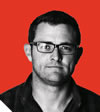Jamba Ulengo was a try-scoring machine for the Blue Bulls in this year’s Currie Cup, writes SIMON BORCHARDT.
Jamba Ulengo would have been lost to South African rugby if not for the efforts of two South African headmasters.
It was Corrie van der Walt, the headmaster at Fauna Primary in Bloemfontein, who encouraged an eight-year-old Ulengo, who until then had focused only on athletics, to play rugby. And it was Schalk Malherbe, the headmaster at Hoërskool Jim Fouché, who gave Ulengo a scholarship that would allow him to further develop his rugby skills.
Ulengo played flyhalf and centre at primary school, before moving to wing in high school. He represented Free State at the U16 Grant Khomo Week in 2005 and 2006, the U18 Academy Week in 2007 and the U18 Craven Week in 2008.
‘When I was at school I played the game for the fun of it,’ Ulengo tells SA Rugby magazine. ‘It was only when I got a Free State U19 contract that I really considered the possibility of becoming a professional rugby player.’
The wing went on to play for the U19 team in 2009, and scored 12 tries for Free State U21 over the following two seasons. He also represented Shimlas from 2010 to 2012, crossing the whitewash 11 times in 18 matches.
Ulengo, though, would make just one appearance for the senior Free State side – during the 2012 Vodacom Cup. He was included in their Currie Cup squad that year without getting a game.
You wouldn’t blame Ulengo for complaining about a lack of opportunities at senior level while in Bloemfontein, but he doesn’t hold any grudges against his former employers.
‘I saw that period as a chance to learn and develop my game,’ he says. ‘I was prepared to wait for my opportunity and keep working hard.’
That hard work paid off when, based on his Varsity Cup form, Ulengo was selected for the Emerging Springbok Sevens team that travelled to Kenya in 2012. He was called up to the Blitzboks soon afterwards, making his debut at the Glasgow Sevens. He was given a two-year sevens contract and went on to play in 13 World Series tournaments and win a gold medal at the World Games.
While Ulengo enjoyed his sevens stint, he had no hesitation in returning to the 15-man game when the Blue Bulls made him an offer last year.
‘The Bulls provided me with a huge opportunity to grow as a player and a person in a different environment,’ he says.
However, Ulengo once again had to wait patiently for an opportunity to impress. He made just one appearance in last year’s Currie Cup, with Akona Ndungane, Bjorn Basson and Sampie Mastriet ahead of him in the pecking order, and didn’t play Super Rugby this year. Instead, he was a regular starter for the Bulls’ Vodacom Cup team, scoring five tries.
‘There’s a lot of competition at the Bulls and I didn’t expect to just rock up and play,’ he recalls. ‘I was happy to showcase my talent in the Vodacom Cup. It was a great learning curve for me as I got used to the Bulls’ systems and was able to settle into my new environment. I knew my opportunity to play at a higher level would come.’
When that opportunity did come – in this year’s Currie Cup – Ulengo made the most of it. He scored nine tries in the Bulls’ first nine matches and formed part of the competition’s most potent attacking back three.
‘It was great to play with Warrick [Gelant] and Travis [Ismaiel] in the Vodacom Cup,’ he says. ‘I learned how the other two play as individuals, which helped us to gel as a unit. It was also important for us to get to know each other off the field, which we did. We always hang out together.’
Rugby players don’t come more humble than Ulengo. Ask him about his Currie Cup success and he gives all the credit to his teammates, coaches and God. He gives a short answer when asked about his strengths as a player – ‘my attacking game’ – but goes into more detail when asked about his weaknesses – ‘I need to work on my communication and aerial skills, and my defence.’
One thing he is happy to talk about is sevens, and how it helped him become a better 15s player.
‘There is a big emphasis on spatial awareness in sevens and everyone must have the ability to finish and score tries,’ he explains. ‘And because there are only seven players on the field, your defence has to be good or the opposition will score. Sevens training sessions and matches are also done at a high intensity, so you become very fit.’
Ulengo’s short-term goals are to help the Bulls win the Currie Cup and to play Super Rugby next year, but he won’t rule out a return to sevens for the 2016 Olympic Games in Rio.
‘Going to the Olympics is the highlight for any athlete and it would be a great privilege to be part of that SA Sevens team,’ he says. ‘But for now I am focused on the Bulls. What happens in the future is in God’s hands.’
– This article first appeared in the November 2015 issue of SA Rugby magazine




